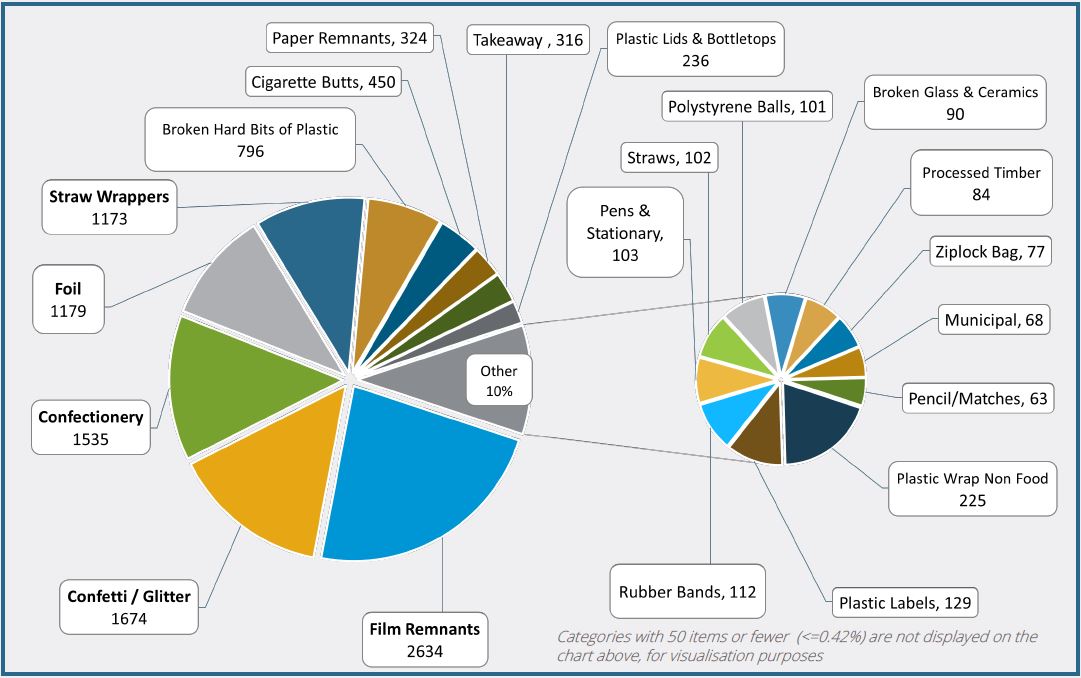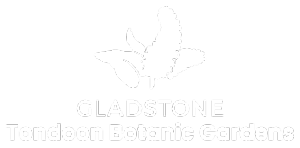Living Here
- Pets and Animals
- Residents
- Report
- Environment
- BackEnvironment
- Air Quality
- Biodiversity
- Biosecurity
- Blue-green algae blooms
- Bushfire Mitigation
- Coasts and Coastal Vegetation
- CoastSnap
- Conservation Programs and Initiatives
- Erosion and Sediment Control
- Feral Animals
- First Nations Fire and Land Officer
- Landfill Gas Abatement
- Mosquitoes
- Pests and Weeds
- Weed Spray Equipment Hire
- Wildlife
- Community Development
- Community Investment
- Services
- Emergencies
Conservation Programs and Initiatives
Clean Up Australia Day
Cleaner Road Runoff research project
National Tree Day and Schools Tree Day
Friends of Conservation
Coastal wetlands
Reef Guardian Council Program
Tigalee Creek Riparian Vegetation Restoration
Litter Education and Awareness Program (LEAP)
Collaborative conservation projects
Clean Up Australia Day
Clean Up Australia Day is Australia’s largest community-based environmental event held annually during the first week of March. The event encourages schools, businesses and the community to get involved to remove litter from local parks, roadsides, creeks and beaches. Register Online
Great Spring Clean Up
Our region often experiences hot and humid weather in early March, and the Clean Up Australia day on Sunday 6 March, 2022 coincided with a heatwave event. Participating in the Great Spring Clean Up in cooler months reduces fatigue, heat and dehydration risks to participants.
Council sincerely appreciates the communities ongoing support of Clean Up efforts in the Gladstone region and hope that people will be able to register a site for the Great Spring Clean Up event in September each year.
Please follow the link for more details on the Great Spring Clean https://register.cleanup.org.au/.
Cleaner Road Runoff research project
Gladstone Regional Council is proud to be part of the Great Barrier Reef Cleaner Road Runoff Project which is working to develop better practices to protect the Great Barrier Reef.
The project monitors unsealed roads throughout the state to better understand the loss of fine sediments from road material during rain events and its impact on water quality.
Fine sediments are one of the three greatest water quality risks to the Reef as it reduces available light to seagrass beds and inshore coral reefs.
With an estimated average of 25mm of silt washing off the top of the 38,000km of unsealed roads in the Reef catchment area, the results from this project will help improve best practices for road designs and maintenance in the future.
Eight Pump Active Suspended Sediment (PASS) Samplers have been placed in the Gladstone Region test area along Raglan Station Road and will capture sediment samples after major rainfall events.
The Cleaner Road Runoff Project is funded by the partnership between the Australian Government's Reef Trust, the Great Barrier Reef Foundation and Local Government Association of QLD with support from Griffith University, IPWEQ, Department of Environment and Science, Office of the Great Barrier Reef, Bundaberg Regional Council, Whitsunday Regional Council, Isaac Regional Council, Cassowary Coast Regional Council and Gladstone Regional Council.
National Tree Day and Schools Tree Day
National Tree Day and Schools Tree Day are annual, national events where the community comes together to get their hands dirty planting trees and restoring native vegetation in local areas. The events are held each year during the last week in July.
Gladstone Regional Council supports National Tree Day by facilitating tree planting events throughout the region in conjunction with local businesses and community groups.
More Information GRC Event Information
Friends of Conservation
Friends of Conservation is a volunteer program facilitated by Gladstone Regional Council. Volunteers primarily work alongside staff to propagate and care for native plants at Council’s Tannum Sands Nursery. Friends of Conservation also participate in other activities and events throughout the region to help conserve the natural environment.
Volunteers meet every Tuesday from 7:30am to 10:30am at Council’s Tannum Sands Nursery. Come every week or only when you can.
For more information or to apply to become a volunteer, contact (07) 4971 4444 or visit Gladstone Volunteering.
Role Description Application Form
Coastal wetlands
Saltmarsh habitats are fragile. Here’s how you can help protect our wetlands:
- Stick to pathways and tracks and do not four-wheel drive, bike ride or walk on saltmarsh
- Tidal wetlands and saltmarshes are not a four-wheel drive playground and if you drive onto a wetland expect to become bogged to the axles.
- Dispose of chemicals, oils and rubbish appropriately and do not allow these items to enter the stormwater drain network. Learn more about proper disposal of hazardous waste.
- Launch your boat from official boat ramps to avoid driving on saltmarsh communities associated with informal boat launching areas.
- Avoid mowing saltmarsh or allowing your garden plants, lawn clippings or weeds to spread onto saltmarsh communities.
Report activities that cause harm or damage to saltmarshes
Saltmarsh plants are protected as marine plants under the Queensland Fisheries Act 1994.
Report any activities that harm saltmarsh plants by contacting the Department of Agriculture and Fisheries (DAF).
World Wetlands Day
Council recognises World Wetlands Day which falls on 2 February each year.
The theme for World Wetlands Day 2025 is ‘Protecting Wetlands for Our Common Future.’ More information
Reef Guardian Council Program
Gladstone Regional Council is proud to be a part of the Reef Guardian Council program.
The Reef Guardian Council program is a partnership between local government and the Great Barrier Reef Marine Park Authority (Reef Authority) which recognises that local and regional approaches are central to protecting and managing the Reef and the communities it supports.
Local governments are key management partners as many of the threats to the Reef and heritage values arise outside of the Marine Park boundaries and the Reef Authority’s jurisdiction.
The program includes 20 participating councils between Bundaberg and Cooktown, covering an area of 317,000 square kilometres and a population of more than 1.1 million people. Each council progresses a Reef Guardian Action Plan that outlines a variety of initiatives they are taking to contribute to Reef health and align with the Queensland and Australian Government objectives to improve the long-term outlook for the Reef, particularly the Reef 2050 Long-Term Sustainability Plan.
Protecting the Reef starts by protecting our patch
Gladstone Regional Council undertakes a wide range of initiatives that help address the key threats to the Reef including:
- Limiting the impacts of climate change
- Reducing the impacts from land-based activities
- Protecting, rehabilitating and restoring habitats
- Reducing impacts from water-based activities
- Conserving historic and cultural heritage.
Related Information
- Learn about the Great Barrier Reef
- Learn about threats to the Reef
- Reef Guardian Council Climate Change Snapshot
- Reef 2050 Plan
Tigalee Creek Riparian Vegetation Restoration
Gladstone Regional Council has launched a pilot program to restore waterway vegetation to improve water quality in the Great Barrier Reef catchment area.
The program aims to restore riparian vegetation along a section of Tigalee Creek, Sun Valley, through a combination of pest weed controls, reduced mowing along the creek banks and planting an additional 650 native plants.
Riparian vegetation plays an important role in water health and water quality and restoring it within the Reef catchment area reduces sediment and other pollutants from impacting coral health and marine ecosystems.
We are proud to be a Reef Guardian Council that is working to protect and conserve the Great Barrier Reef Marine Park through activities that improve the health and resilience of the Reef.
The programs results will be finalised in March 2023 and, if successful, will provide a framework for other restoration projects throughout the region.
If you have any questions or concerns, please contact the Environment & Conservation team on (07) 4970 0700 or Email Council.
Litter Education and Awareness Program
From May 2021 to June 2022, Gladstone Regional Council undertook the Litter Education and Awareness Program (LEAP), run in collaboration with local Reef Guardian Schools, Cleanwater Group and Tangaroa Blue.
What is LEAP?
The LEAP project involved installing litter capture devices within and surrounding participating Reef Guardian schools, analysing the contents captured over a 12-month period and educating students about stormwater pollution and ways to prevent it.
Students involved were given the opportunity to learn first-hand what pollutants were entering the drains around their school, and further discussed litter reduction and stormwater management.
Data collected from the LEAP program was uploaded to the Australian Marine Debris Database, making it available for researchers and litter reduction organisations.
Why was LEAP undertaken?
The Litter Education & Awareness Project (LEAP) was developed in response to an alleged contravention of the Environment Protection Act 1994 relating to extraction of material above that of Council’s prescribed licensing, across some Council managed pits.
Upon discovery, Gladstone Regional Council notified the Department of Environment and Science (DES). Following a formal investigation, an Enforceable Undertaking was entered by Council and DES, through which Council committed to undertake the LEAP project.
How was the litter captured?
Most of the litter capture devices installed for LEAP were called ‘Drain Buddies’, a litter trap designed by Cleanwater Group.
A drain buddy is a reinforced mesh basket that sits within a storm drain and catches debris and pollutants entering that drain. Drain buddies are installed with an ‘overflow’ to avoid causing flooding if the basket becomes too full of matter.
Due to the varied nature of storm drains within school grounds, some schools had different types of litter capture devices installed, such as solid mesh ‘trays’ that sit within shallow drains. These variations work on a similar principle, straining the pollutants and debris from stormwater.
Ten schools across Gladstone, Agnes Water and Boyne Tannum participated in the 12-month LEAP Program, which provided opportunities for students to learn firsthand about stormwater litter of the reef, environmental conservation, and litter source reduction. The LEAP project aimed to improve awareness of stormwater pollution, and ways we can all manage this issue.
School participants
- Toolooa State High School
- Chanel College
- Kin Kora State School
- Clinton State School
- Gladstone State High School
- Gladstone West State School
- St John’s Catholic Primary School
- Boyne Island State School
- Tannum Sands State School
- Agnes Water State School
Project outcomes
A total of 12,315 pieces of litter was captured over the 12 months, hand-counted and categorised by school students into the various litter categories.
“Film remnants” were found to be the most common type of litter found with 2,634 pieces counted. This was followed by confetti/glitter, confectionery wrappers, foil and plastic straw wrappers.
Collaborative conservation projects
Gladstone Regional Council manages various reserves and natural areas throughout the Gladstone region. Council supports various community groups and organisations to undertake conservation projects that help protect and enhance the values of these natural areas. Support may include, in-kind provision of native plants, materials and staff assistance.
For more information, or to collaborate with Council, contact the Environment & Conservation team on (07) 4970 0700.
Funding opportunities
Community Investment Program Fitzroy Basin Association Burnett Mary Regional Group
Sustainable living tips around the home
Environmental monitoring Sustainable housing Energy-efficient homes Qld Government waste management and regulations
Living Here
- Pets and Animals
- Residents
- Report
- Environment
- BackEnvironment
- Air Quality
- Biodiversity
- Biosecurity
- Blue-green algae blooms
- Bushfire Mitigation
- Coasts and Coastal Vegetation
- CoastSnap
- Conservation Programs and Initiatives
- Erosion and Sediment Control
- Feral Animals
- First Nations Fire and Land Officer
- Landfill Gas Abatement
- Mosquitoes
- Pests and Weeds
- Weed Spray Equipment Hire
- Wildlife
- Community Development
- Community Investment
- Services
- Emergencies
Gladstone Regional Council
Connect. Innovate. Diversify.
Get in Touch
Phone
(07) 4970 0700
Opening Hours
8.30am - 5pm Monday to Friday
Social media
Postal Address
PO Box 29, Gladstone Qld 4680
Council Offices
101 Goondoon Street, Gladstone Qld 4680
3 Don Cameron Drive, Calliope Qld 4680
41 Blomfield Street, Miriam Vale Qld 4677
Cnr Wyndham & Hayes Avenues, Boyne Island Qld 4680
Rural Transaction Centres
71 Springs Road, Agnes Water Qld 4677
47 Raglan Street, Mount Larcom Qld 4695
Footer Acknowledgement
Gladstone Regional Council would like to acknowledge the Bailai, the Gurang, the Gooreng Gooreng and the Taribelang Bunda people who are the traditional custodians of this land. Gladstone Regional Council would also like to pay respect to Elders both past, present and emerging, and extend that respect to other Aboriginal and Torres Strait Islander people. Learn more about Council's Reconciliation Action Plan (RAP).
Chat Popup
All content © Gladstone Regional Council. All Rights Reserved.
Back to the top








